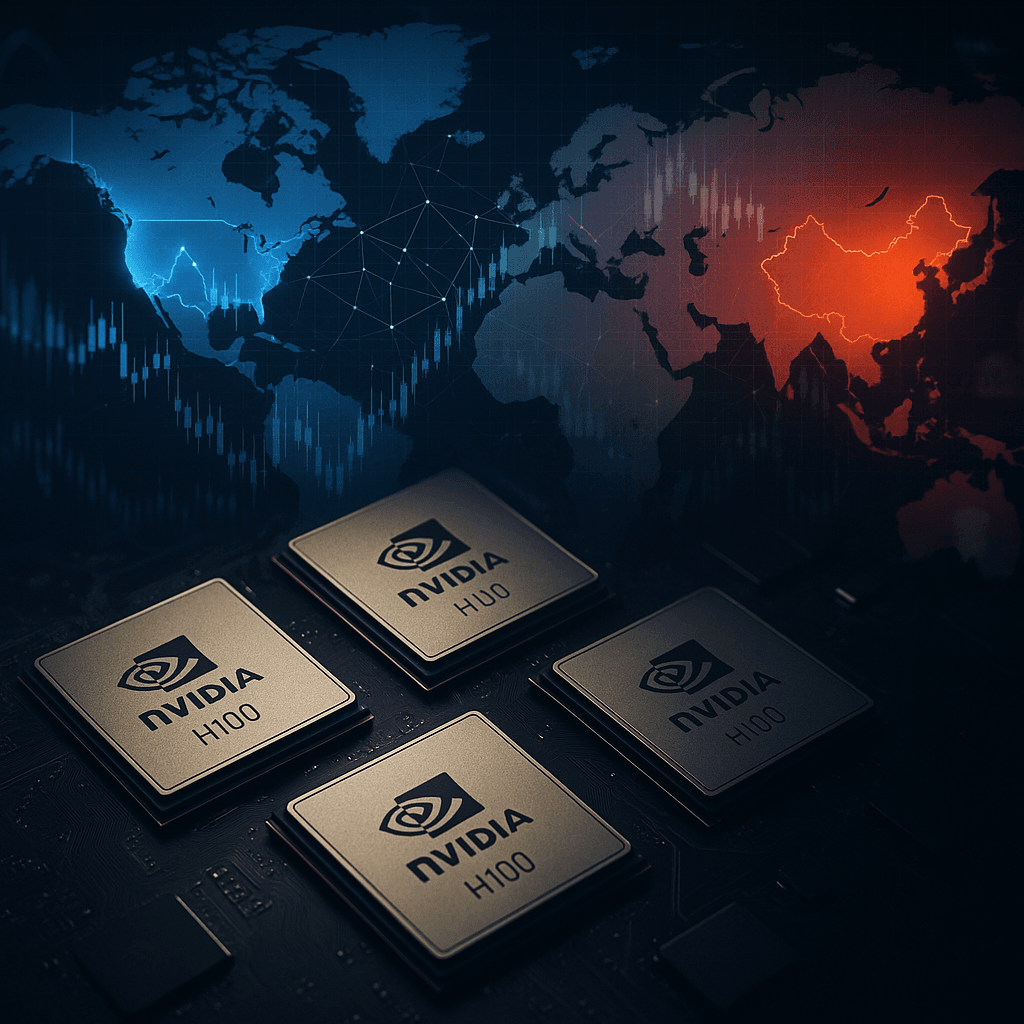TL;DR
- - Export controls failed to prevent Nvidia chip smuggling.
- - $10M in Nvidia's H100 chips were illicitly shipped to China.
- - Highlights geopolitical tension impacting AI tech supply.
- - Investors should watch for tighter export policies.
In a significant legal maneuver, the U.S. Department of Justice has charged two Chinese nationals with illegally exporting Nvidia AI chips worth tens of millions of dollars to China. This incident highlights the ongoing struggle between U.S. export control efforts and China's relentless pursuit of advanced semiconductor technology. The unfolding situation holds implications for AI advancements and international trade dynamics, particularly for industry leaders and investors evaluating geopolitical risks.
Opening Analysis
Recent charges against two Chinese nationals for smuggling Nvidia's most advanced AI chips to China underscore the high-stakes battle over control of cutting-edge technology. U.S. authorities have placed stringent measures to contain China's tech acquisition, particularly in AI and semiconductors. Nvidia, a global leader in AI chips, finds itself at the center of this legal and trade skirmish.
Market Dynamics
The illicit trade not only affects Nvidia but also sends ripples through the highly competitive semiconductor market. The Department of Commerce had implemented export controls specifically to curb such black-market activity, reinforcing the broader U.S. strategy to maintain a technological edge. Despite these controls, the incident signals persistent vulnerabilities within global trade enforcement.
Technical Innovation
Nvidia's H100 chips, involved in the smuggling case, represent state-of-the-art AI technology, used extensively in data centers and machine learning. Their unauthorized diversion to China illustrates the increasing value and demand placed on advanced AI hardware globally, with smuggling operations stepping into the breach left by legal restrictions.
Financial Analysis
The illicit trade of chips valued at tens of millions further emphasizes financial incentives driving such illegal activities. Nvidia’s official sales channels remain robust, yet the shadow market reveals vulnerabilities that could pressure stock valuations and investor confidence, particularly as U.S.-China trade tensions escalate.
Strategic Outlook
With U.S. agencies like the FBI and Department of Commerce intensifying crackdowns, companies involved in high-tech manufacturing face growing compliance challenges. The geopolitical climate suggests heightened scrutiny on tech exports, incentivizing legitimate channels to enhance compliance.
